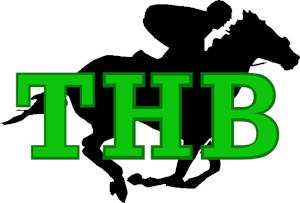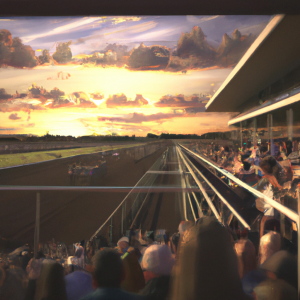Shifting Horse Betting Odds
As a newbie to horse betting, it can be hard to get your head around the odds. Here’s the lowdown on why and how the odds shift over time. The table below explains who drives the movement of odds up and down.
| Reasons | Stakeholders |
|---|---|
| Injury of Horses | Players |
| Change In Weather | Bookmakers |
| Jockey Selection | Insiders |
Other than this, sudden changes in the odds of a particular horse can be caused by various other factors.
Factors Affecting Horse Betting Odds
To understand the various factors that affect horse betting odds, you need to understand track condition and weather, bookmakers and market forces, form and performance of the horses, and jockey and trainer information. By examining each of these you can gain insight into why horse betting odds fluctuate and make more informed betting decisions.
Track Condition and Weather
When it comes to horse racing, betting odds can be affected by various weather-related factors. Temperature, humidity, precipitation, and track condition can all have an impact on a horse’s performance on race day.
For example, sunny weather can lead to firm track conditions and faster race times. Rainy weather can result in a soft or muddy track, which may give experienced horses an advantage. Foggy conditions can reduce visibility and cause dangerous situations for both horses and jockeys. Hailstorms and thunderstorms can create absorption issues and increase injury risk.
Other factors such as slope gradient, surface type, and traffic flow can also influence a horse’s performance. Betting enthusiasts should stay informed of weather and track conditions before race day – this can be pivotal in determining the outcome.
Horses are more affected by hot temperatures than cold ones as heat can lead to dehydration and reduced performance. Therefore, warmer weather conditions could put certain horses at a disadvantage.
Ultimately, bookmakers may set the odds, but it’s the market forces that really drive them – kind of like how a horse is led to water, but it’s up to the horse to drink it.
Bookmakers and Market Forces
Bookmakers are subject to changing market forces that affect horse betting odds. They various strategies to make sure they make a profit and manage their risks.
Take a look at how these factors can modify the odds of a particular horse winning:
| Factors | Description |
|---|---|
| Market Volume | The total amount of bets placed on a race can change the odds bookmakers offer. More bets on one horse lower its odds. |
| Previous Performance | A horse’s earlier racing results can adjust its betting odds. Horses with better records have lower odds. |
| Injury Information | Any info on injuries a horse gets can greatly change its odds. |
| Weather Conditions | Rain, fog or wind can alter how horses do and thus impact their betting odds. |
| Competing Horses | The number of racers in an event can change both the potential prize and the chances of winning for each horse. |
Unexpected things can affect a horse’s odds more significantly, like illness / injury or sudden switches in trainers or jockey.
Form and Performance of the Horse
Past performance stats help predict wins and losses. A horse with excellent recent performance — or improvements over time — is likely to see better odds on race day.
To understand the impact of form and performance, we can create a table with columns such as: Horse Name, Previous Wins, Runs, Avg. Time per Furlong Run, etc. This data helps show unique details of a horse’s performance and help predict the current numbers with better accuracy.
Consider ‘in-form’ horses and their abilities on current track conditions. Research and analyze each horse’s likelihood to perform better than its peers; this could help your betting portfolio in the long run.
Jockey and Trainer Information
Examining horse betting odds requires looking at Trainer and Jockey info. Success rate, experience and how they collaborate together can influence the race outcome. Studying their style, past results and personality traits can give gamblers an edge.
Track conditions and a jockey’s experience with those conditions on different forces is an important factor. In poor weather conditions — heavy rain, for example — the jockey’s experience and race management can be the deciding factor.
Likewise, training a horse to perform well on particular track styles or weather conditions can boost the odds of a horse winning, or ruin its odds, as the case may be. Going deeper and learning how trainers build and manage their race horse’s performance is essential to understanding the true odds.
Jockeys and Trainers are judged on many factors, like communication style, track knowledge, fitness and how they handle pressure. With research, predictions might yield big payoffs.
Changing Odds Before the Race
Early market odds, significant news or events, and market response to big bets or volume can all influence the movement of the odds.
Early Market Odds
In the racing world, guessing which horse will win is never sure. ‘Ante-Post’ bets can help. Bookmakers set early market odds to guess the results. Here’s a look:
| Horse | Odds |
|---|---|
| Flashpoint | 10/1 |
| Thunderbolt | 4/1 |
| Blizzard | 7/2 |
| Hurricane | 6/1 |
| Cyclone | 8/1 |
To stay on top, you must watch these early market odds and how they change. Keep an eye on the ‘ante-post’ markets.
Significant News or Events
Unexpected developments can cause betting odds to change before a race. News about the weather, track conditions, or the horses’s health will adjust the odds in real-time. Experienced bettors might take advantage of these shifts, placing their bets strategically.
Sometimes, news or events can completely alter the dynamics of a race. Horses predicted to do well may not do so due to, say, an injury or withdrawal. On the flip side, a lower-ranked horse may get a boost from news about its training or performance history.
A common problem in horse racing circles has always been owners, jockies, trainers, bookies or “the house” manipulating horse racing odds through nefarious methods. Everything from stuffing foam in a horse’s nose, to juicing a horse with illegal drugs, to hiding an injury, and many more tactics have been used. This can be a factor in odds changing, but it’s very hard to predict.
Flexibility and data analysis skills are key – but it’s mostly about staying alert and ready for surprises.
Many gamblers make a living out of following the shifting odds across multiple races and tracks. Bookies certainly do. Whether you’re a fan, or considering becoming a professional gambler, keeping up with events before the race is critical for informed decisions. Luck alone won’t do it.
Market Response to Big Bets or Volume
The fluctuation of odds is driven by the market’s reaction to large bets or volumes. This often results in the odds changing before the race even starts, and this affects the potential pay-out of a wager.
When large bets or volumes increase, the market reacts favorably, resulting in a decrease/increase in odds. Conversely, when large bets or volumes decrease, the market reacts negatively, resulting in an increase/decrease in the odds.
It is important to remember that not all markets respond the same. Different factors such as regional trends, the horse’s past performances and its jockey can impact betting markets differently.
The 2009 Kentucky Derby is a good example of drastic odds change. The initial odds for Mine That Bird were +5000, decreasing to +50 at race time. This was because of significant bets placed on Mine That Bird just hours before the race, causing bookmakers’ and bettors’ confidence levels to shift drastically.
It’s essential to keep an eye on any notable changes prior to a race and adjust bets accordingly. Don’t be shocked if the odds change dramatically soon before the race – after all, it’s not called a sure thing for no reason.
Changing Odds During the Race
To understand changing odds during the race with in-play betting and market fluctuations, as well as horse performance during the race, keep reading. These sub-sections will provide you with insights into why horse betting odds change, and how you can navigate these fluctuations to make informed decisions while betting on horses.
Creating a ‘In-Play Betting and Market Fluctuations’ table would include columns of time, event name, initial betting value and live fluctuating values.
Horse Performance During the Race
In a horse race, each horse’s performance can change quickly. Stamina, jockey tactics and the environment all impact the way betting odds shift.
If performance changes, the odds do too. Data like speed, timing and heart rate help experts make predictions.
In Japan, they have Rakuyo Grand Sprints inspection races before each race. This helps handicappers see the horse’s abilities in different conditions. Betting on horses is like a rollercoaster – the odds can shoot up or down. Trust your gut!
Conclusion: Understanding Horse Betting Odds and its Fluctuations.
Comprehending the Dynamic Nature of Horse Betting Odds
Odds when betting on horses change regularly due to multiple causes. This includes weather, jockey switches, and track situations. These modifications can impact the odds and hence, potential payouts. Also, a horse’s past races have a major role in how bookmakers set their odds. In short, these aspects are taken into account by the marketplace when calculating fair odds.
It is vital to recognize that the amount won or lost from a bet is entirely reliant on the current odds at the time of placing it. This is why individuals need to understand why fluctuations take place and figure out how to analyze and adapt to them.
Though some may think that all bookmakers have similar horse betting odds for each race, this isn’t necessarily true. As races unfold and new information is shared in betting markets, bookmakers modify their respective odds and price them into their deals.

I am Lawrence (aka “The Horse Better”). I spent 20+ years in financial risk management where I ran large-scale statistical betting models in complex situations. I grew up around horses and I’ve been betting on horse races for about 10 years with good success. I hope my articles provide good value!

